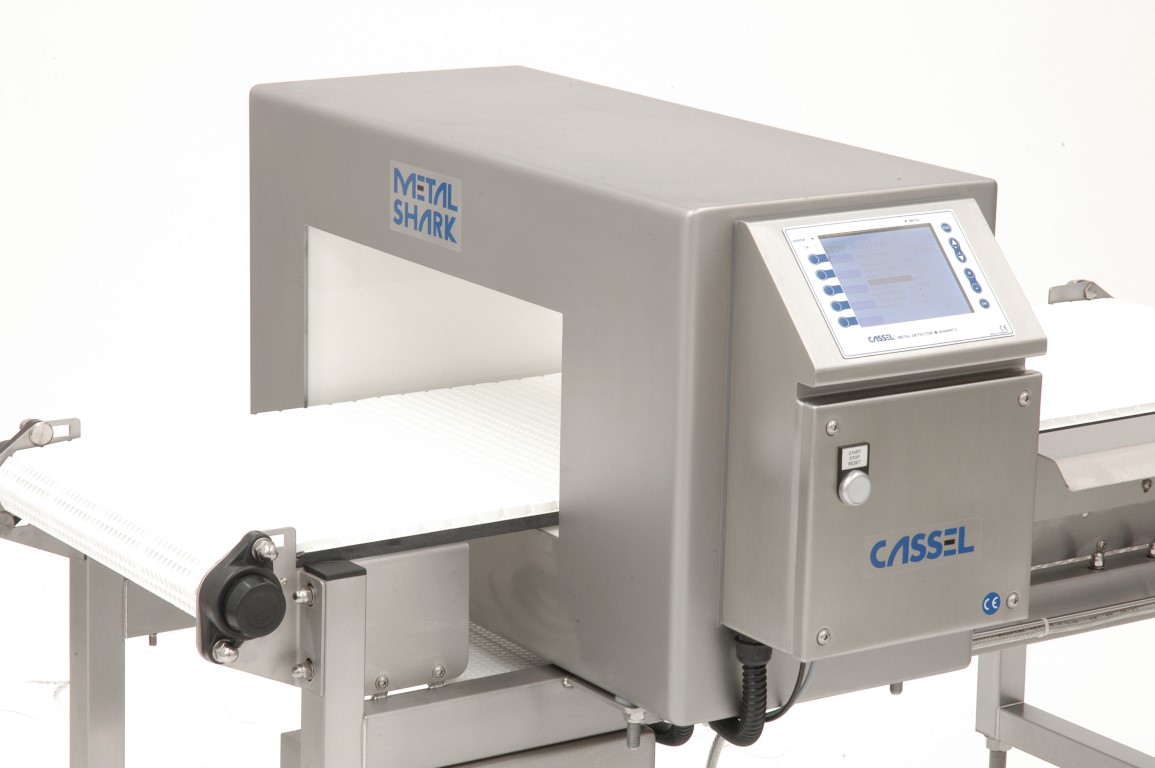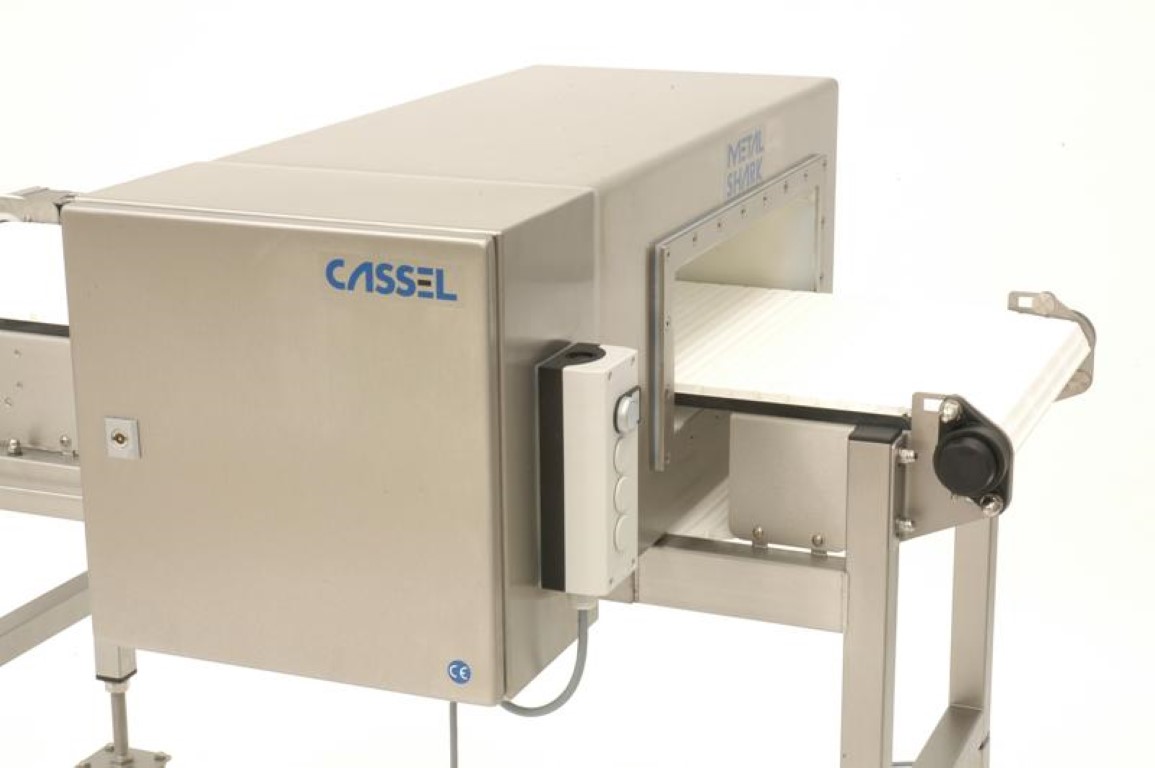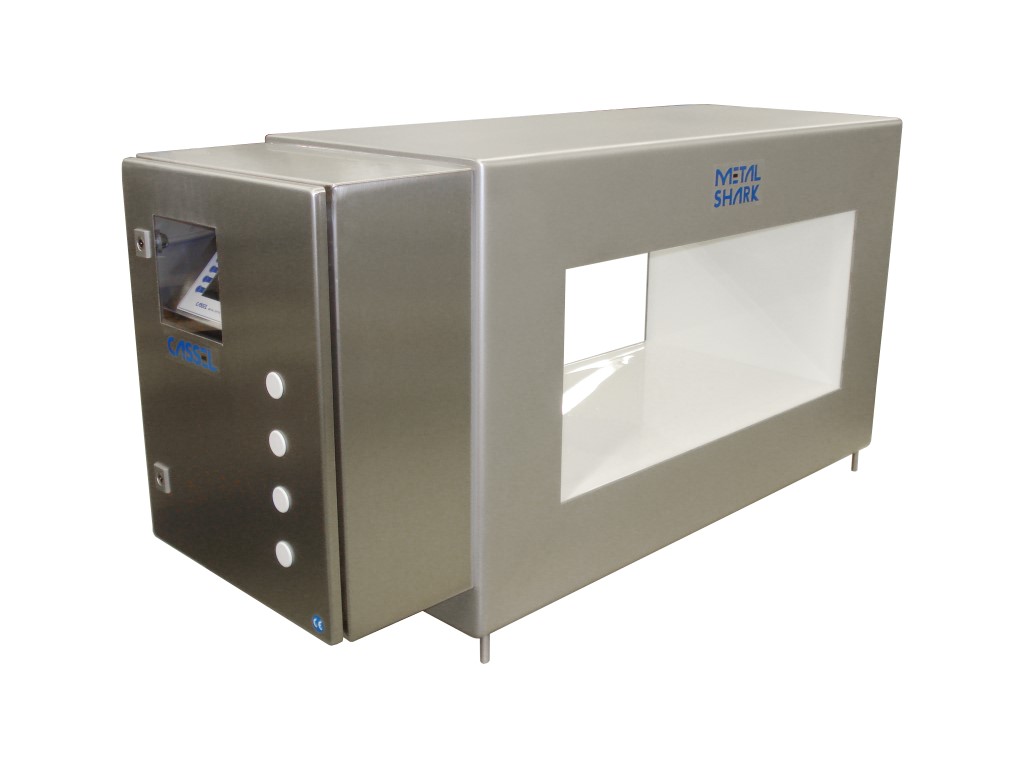产品介绍
- Frozen products
- Candy
- Bread, cakes and other pastries
- Fish
- Meat and meat products
- Ready-to-serve meals
- Raw material checks
Cassel′s Metal Detector BD, typically integrated onto conveyor belts, include readily adjustable settings to ensure extreme equipment sensitivity, stability and reliability. A variety of reject mechanisms (pusher, belt stop and alarm, etc.) is available to alert operators of a “find” or to divert contaminated products. The conveyor belt, framing and controls are made with sanitary designs for food grade process applications. Cassel Metal Detectors can be easily adjusted for the best product inspection tasks even under harsh environmental conditions or for conductive products.
The Metal Detector BD is generally used for:
The METAL SHARK® BD is enclosed in a 100% stainless steel housing unit and is specifically designed for use in the food industry.
Available digital controllers: METAL SHARK® 1, METAL SHARK® 2A
Features & Benefits of Metal Detector BD
HACCP and IFS compliance: Per HACCP principles, Metal Detectors are classified as critical control points and continuous checking is required to meet standards. If requested, Cassel can integrate a performance validation system (PVS) which automatically prompts the operator to test Metal Detector performance at pre-set intervals.
Operational history: Metal contaminant detections, changes in parameter settings and other events are recorded with the date and time. Users can view the list of “incidents” on the control panel or export the log via a serial port.
Ready for SHARKNET® software: To comply with HACCP and IFS standards, SHARKNET® enables automatic downloading of data documentation to a Windows-based PC.
LPW option for low-pressure wash-up (IP67): To obtain the IP67 rating, the METAL SHARK® controller can be housed in a double-thick stainless steel enclosure. This upgrade allows for wash-up with a low-pressure water hose.
HPW option for high-pressure wash-up (IP69k): To obtain the IP69k rating, the aperture can be specially sealed to prevent leaks and the METAL SHARK® controller can be housed in a double-thick stainless steel enclosure. Daily wash-ups with a steam hose at a maximum pressure of 60 bar/900 psi can be handled. This feature benefits manufacturers in industries where frequent wash downs are required, such as in meat-processing industries.






